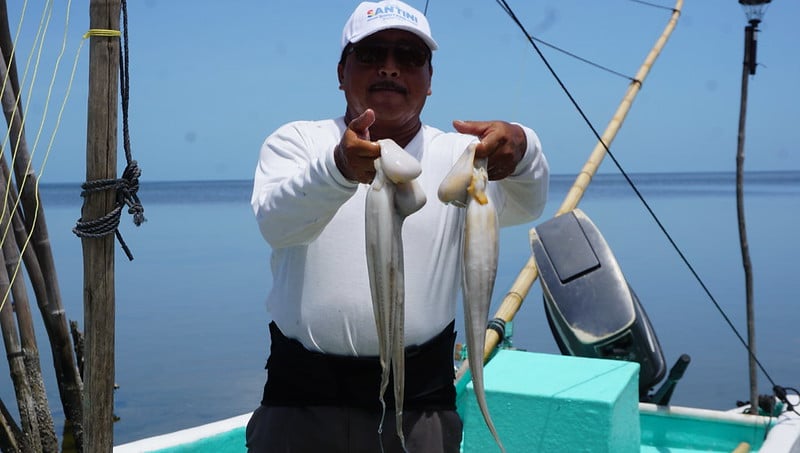Merida, Yucatan — Each year, with the occasion of every lifting of the temporary ban for the fisheries of greatest commercial value, the complaint from fishermen's organizations is repeated: illegal fishing has taken such a toll on species that for those who operate legally, it has become unprofitable to go out every day, or the trips no longer allow for a return on investment because it is impossible to obtain the catch volumes of previous years.
The explanation for the persistence of the issue becomes complex when enumerating the factors that favor illegality. The main one is the market itself, which responds with an offer at an excessively high price when there is a demand from a public that is not very demanding regarding the traceability of what it consumes. Thus, the idea has been created that thanks to the development of more efficient conservation and freezing techniques, it is possible to have Mayan octopus on the table all year round, for example.
Next is the state's weakness in conducting inspections and monitoring the coastline, but we also cannot be blind to the mechanisms of corruption that allow for a "dark figure" of illegal catch, and for every seizure we can guess that there have been other days during which the illegal fishers "worked" without anyone bothering them.
If efforts are concentrated on establishing stronger sanctions based on the regulatory framework, it is most likely that illegal fishing will continue as it has until now. Harsher penalties, even the warning of prison, will not make this activity decrease, and this is true even if awareness campaigns are conducted: as long as the public security forces do not carry out daily inspections at sea and on the beach, the law will be a dead letter.
Now, the main objective of the authorities' actions must be to deter illegal fishing, which is not synonymous with imprisoning every person incapable of demonstrating the legal provenance of the grouper, octopus, lobster, conch, sea cucumber, or the species found in their possession. The seizure does not return life to the captured animals either, so it cannot be said that there has been no ecological damage.
On the contrary, toughening penalties—whether they are higher fines or the establishment of prison for anyone found fishing in protected areas, using prohibited gear, or in possession or transporting species under a ban—will be insufficient if the demand is not curbed and a certificate of origin verification is not imposed. The incentive is that the same risk will increase the price, and in some way, all illegal fishing finds a way to insert itself into the market.
What is called into question is the performance of the authorities: from the corresponding Port Captaincies, where it is known who has set out to sea every day, followed by those in charge of patrolling the sea and conducting inspections upon the fishermen's return, and then by those that must be carried out at fishing cooperatives and freezing plants.
In summary, the greatest damage caused by illegal fishing is to the institutions of the State, regardless of the political party in government.
It is also not valid to fall into the false idea that illegal fishermen obtain higher incomes. On the contrary, most of the time they have equipment similar to those who carry out the activity legally; that is, both are exploited by those who concentrate the product and are in charge of marketing it.
As long as the punishment does not reach that sphere, there will also be no major change, and the tax authorities have much to contribute to the fight against depredation.
It may be that from the comfort of our homes we cannot see the damage to the reefs or how the population of Mayan octopus has decreased due to illegal fishing, but neither can we see the damage caused by the loss of credibility in those who are tasked with combating it.
Discover more from Riviera Maya News & Events
Subscribe to get the latest posts sent to your email.
